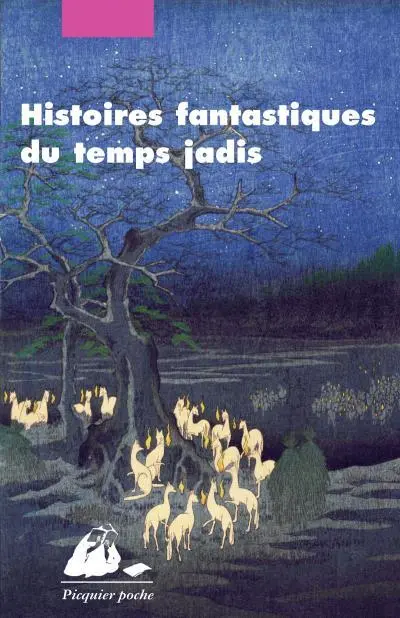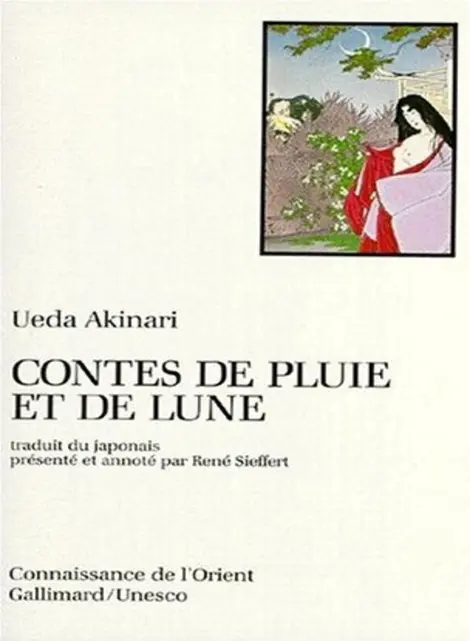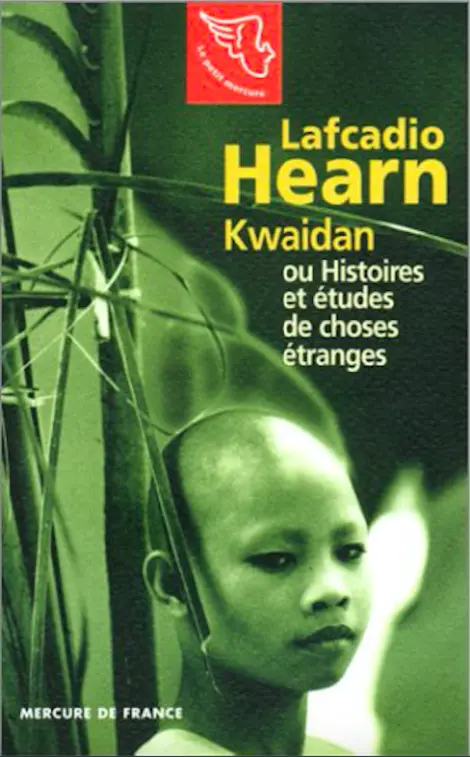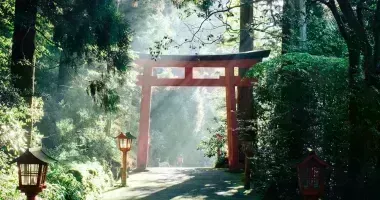3 books of Japanese legends to read 日本のおとぎ話と言い伝え
Spirit, are you there?
Wandering ghosts, one-eyed ogres, bewitching vixens... Legends about these often evil beings proliferated in the feudal age. The books describing these strange phenomena plunge the reader into an ancient and mystical Japan of wandering spirits.
Japanese legends are drawn from the imagination of the country's two religions. If for Shinto, a spirit is good or bad only according to the fervor granted to it, the introduction of Buddhism makes this precept evolve. To popularize this new ideology throughout the archipelago, it was necessary to invent stories mixing real and extraordinary, to arouse wonder, astonishment but also fear. To do this, the stories mix demonic beings and benevolent gods, the latter playing the role of saviors. The most terrifying creatures find themselves opening the doors to the real world and the homes of yesteryear...
Even today, the Setsubun festival, celebrated on February 3 for the arrival of spring, refers directly to this belief in the afterlife. To purify one's house, it is customary to throw soybeans from the inside outwards by pronouncing the formula: Oni wa soto, fuku wa uchi. Literally: demons out, good fortune in!
Haunted passages
Because these supernatural beings do not live in a closed world. No, they access our world as soon as they feel like it. Sliding doors, road crossings, bridges, abandoned places form so many passages that allow these creatures to disturb the established order. These monsters of various shapes are not tender and their passage often results in scenes of horror, a pool of blood, a torn finger, or a disturbing disappearance.
Here is a selection of three books compiling some of these legends:
- Fantastic Tales from Old Times - Anonymous Author
Probably completed around 1120, this collection called in its original form "Stories which transcend" develops in 31 volumes and compiles no less than 1059 fantastic stories! These short legends participating in the diffusion of Buddhism were transmitted orally from village to village by the monks or by the laity. The selection of around forty stories proposed by Dominique Lavigne-Kurihara immerses the reader in the Japan of the Heian period and its mystical creatures. You will thus become acquainted with the famous Tengu, this powerful creature half-man, half-bird represented today in its human form with a vermilion face and disproportionately long nose. Originally the god of the mountains, the Tenguret assumes multiple guises and corrects the most zealous monks.
Editions Philippe Picquier, 2004.
- Tales of Rain and Moon - UedaAkinari
Considered a masterpiece of classic Japanese literature, this book lifts the veil on that moment that comes after the rain as the misty moon watches over lonely souls. This propitious moment becomes the perfect scene for all supernatural manifestations: ghosts and demons begin a vaporous dance bewitching the reader who then plunges into a universe borrowed from poetry and magic. Composed of nine tales, this work is the result of eight years of compiling stories drawn from popular Chinese and Japanese collections. Written in 1776 when the genre was a little outdated, the author launched a new literary genre with his Yomihon: short fantastic stories brought up to date. More than a simple historical enumeration of strange manifestations, this book offers a philosophical reading and opens up the reflection on themes of everyday life (money, power, nature, etc.).
Gallimard, 1990.
- Kaidan or Stories and Studies of Strange Things - Lafcadio Hearn
This work by Lafcadio Hearn, published in 1904, describes sixteen tales collected by the author from the Japanese population. Highly respected by the Japanese, the author of English and Greek origin, naturalized Japanese, transcribes the great popular Japanese beliefs that have passed through the ages in a style full of finesse and sensitivity worthy of the great Japanese authors. Kwaidan in Japanese means the strange story or even the ghost. Short stories of Japanese ghosts that will delight lovers of the genre.
Mercury of France, 1998.
Read: Lafcadio Hearn, aka Koizumi Yakumo
So, when you are comfortably installed in the traditional room of your ryokan, your book in hand, listen for the slightest sounds. Because even the soft hushed sound of a sliding door can announce the arrival of a horned demon or a ghost disguised as a beautiful young woman...

















